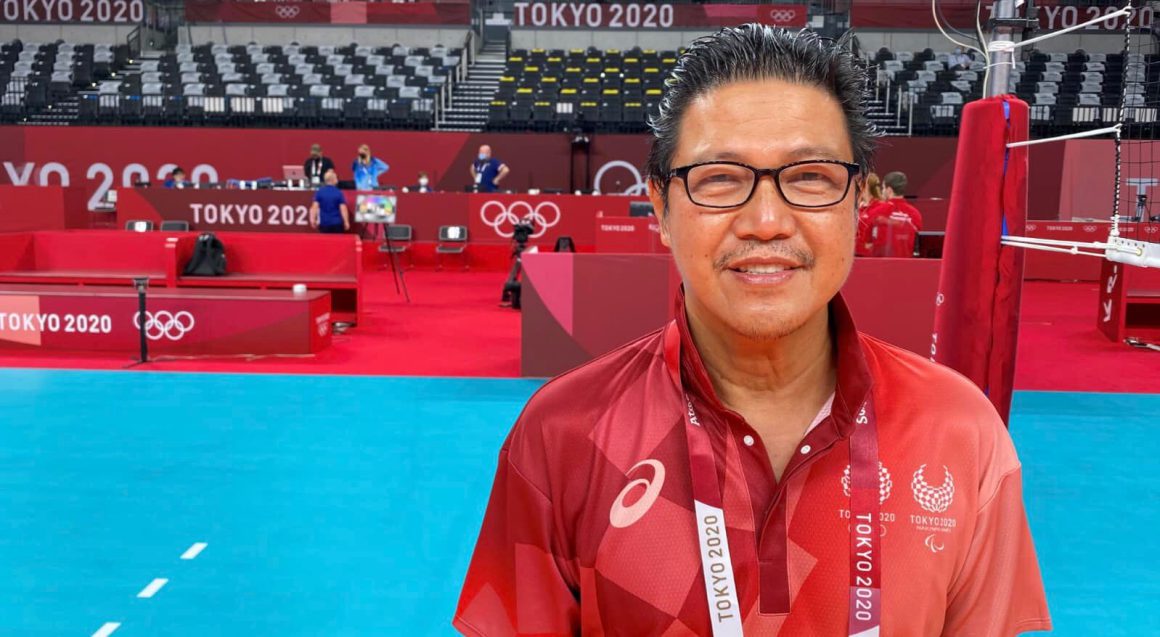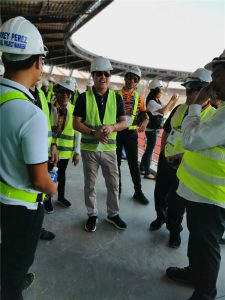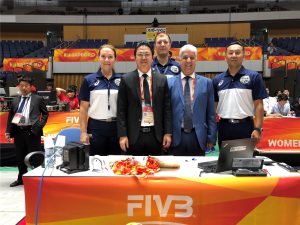FIVB Volleyball Empowerment Commission Secretary and PNVF President shares his thoughts on growing the sport
FIVB Volleyball Empowerment Commission Secretary and Philippine National Volleyball Federation (PNVF) President Ramon Suzara has spent much of his career devoted to volleyball and sport in the Philippines. The FIVB recently had an opportunity to sit down with Mr Suzara to discuss his experience in volleyball and his goals for the future of volleyball and beach volleyball in the Philippines.
1. Dear Mr Suzara, please could you tell us more about your experience in volleyball and in sports administration?
I got started in the sport of volleyball many years ago when I represented the state university in various leagues. I was a setter back in the day. I later continued to work as a physical education teacher in a secondary school.
Later on, my career led me to serve as an official in the sports ministry of the Philippines, the Philippine Sports Commission. Some of the highlights of my career also include serving as president and chief operating officer of the Philippines Southeast Asian Games (SEA) Organising Committee for the 30th edition of the SEA Games.
In volleyball with the FIVB, I took on various roles such as event director, technical delegate, and control committee president, while also serving as a member of the Development and Marketing Commission until 2020. I also served in the Asian Volleyball Confederation’s Development and Marketing Committee for almost the same number of years.
2. Can you tell us more about the history of volleyball and beach volleyball in the Philippines, both at a sports/technical and administration level?
According to some sources the history of volleyball in the Philippines dates back to 1910 when the Physical Director of the YMCA, Elwood S. Brown, first introduced volleyball in the country. Meanwhile, beach volleyball officially started in the Philippines in 1992 when I became Secretary of AVC Beach Volleyball Council and we hosted the Asian beach volleyball circuit on the island of Boracay.
The popularity of the sport catapulted when the University Athletic Association of the Philippines and National Collegiate Athletic Association decided to televise the sport in the 2000s.
3. How popular is volleyball in the Philippines and how successful has the national team been in the past?
I would say that volleyball is very popular in the Philippines. In my opinion it’s probably the number two family sport and entertainment platform in the Philippines.
I would say that the national team had its glory years in the 1980s and in the early 90s as we successfully reached the podium of the SEA Games. I had the honour and privilege to serve as National Team Program Director back then, and it was an initiative where we had set clear, attainable goals for the SEA Games.
4. The Philippine National Volleyball Federation was affiliated a little over a year ago, what are the key changes you have implemented so far?
As any organisation we started by clearly defining our vision and mission as well as setting the objectives which were all encapsulated in a 10-strategy platform.
On the court, we have had several projects in 2021 towards the national team programme as we participated in continental competition for volleyball and beach volleyball. We also staged several successful domestic beach volleyball events, and were also able to launch the PNVF Champions League late last year.
We have also engaged the other regions and provinces in the Philippines to be more involved in the sport because admittedly, volleyball has been very Manila-centric over the last few years.
5. What are your goals for your mandate as President?
My goal is to serve volleyball in the Philippines. In essence, we would like volleyball to become more popular in the Philippines, attract more sponsorships, partnerships and create good media platforms for the teams. These partnerships will then benefit and fuel the National Team Programme toward stability and sustainability.
Another key aspect that is important for me is to improve in terms of tracing a pathway toward Olympic qualification and making our programmes align with the Olympic cycle, ensuring good placing at the World Rankings or Asian Rankings.
6. This year, the Philippines will host its first-ever VNL pools, how are the preparations going?
You know, not only the PNVF, but the entire volleyball fan community in the Philippines are all excited to be able to welcome the Volleyball Nations League for the first time in the event’s history. Of course, it’s really challenging to put together a top-tier event like this as we are still within the pandemic era. Indeed, a lot of health protocols will still need to be observed because, ultimately, we want to host a safe and secure event where fans can enjoy watching top-tier volleyball.
We are very fortunate to be able to enjoy and receive the support of the Volleyball World and FIVB teams who are doing a really great job in guiding us through this process to ensure we host an incredible event in June.
7. How would you evaluate the performance of your national teams and what are the teams’ future goals?
The national team programme is really our centrepiece programme. We want the national team to be abound with really good athletes, coaches, administrators and statisticians or other support staff that would ensure the success of any campaign within the national team programme.
I am really hopeful that we will be able to improve our ranking within the next few years, as we have barely made it consistently to the top eight teams in Asia. Of course, central to this is to really have the teams go out and participate, and really expose themselves to higher levels of competition.
Our future goal is to design a sustainable programme and tap into new development initiatives. Right now, we really want to look into younger players and strengthen our partnerships with the different provinces of various regions to source local, untapped talent in the Philippines.
8. Can you tell us more about the national championships in the Philippines?
Late last year, we successfully staged the inaugural edition of the PNVF champions league for both the women’s and men’s divisions. We formulated something similar to an open competition where everyone was welcome to join, from existing club teams to teams supported by local government because we really wanted to have a league that would represent different parts of the country. This was one of the many victories that we had last year, especially as one of the first national federations to host a league during the pandemic.
We plan to continue holding this every year and we’ve already had many new teams express an interest in participating, so we’re really excited about continuing to provide a valuable competition platform.
9. The FIVB is currently providing coaching support to the PNVF. How is this going? Have you seen any improvements in the performance of your national teams?
The FIVB’s support has been invaluable, both through development programmes and now through Volleyball Empowerment. Further to this, we’ve also been fortunate to receive support from our sports ministry and the Philippine Olympic Committee. They have helped seek approval for an Olympic support grant that would help fund our requirements and technical supply.
Since July 2021, we have been working alongside Jorge Edson Souza De Brito, a Brazilian technical expert who has been serving as the head coach of our women’s team.
10. With your new role as the Secretary of the Volleyball Empowerment Commission, can you tell us more about the commission’s role and how you can contribute to it?
First of all, I’m very fortunate and truly honoured to be given this great responsibility. I am also lucky to be working alongside a volleyball legend, Mr Vladimir Grbiç, who is the President of this Commission. It’s a new initiative, formulated under the leadership of President Dr Ary S. Graça Fᵒ, and tasked with helping National Federations with huge potential to improve the level of their national teams.
Related links of AVC
AVC Website: click www.asianvolleyball.net
AVC Facebook: click www.Facebook.com/AsianVolleyballConfederation
AVC Twitter: click: www.twitter.com/AsianVolleyball
AVC Instagram: click: https://www.instagram.com/avcvolley/?hl=en
AVC Youtube: click: Asian Volleyball Confederation
AVC WeChat: Asian Volleyball Confederation




